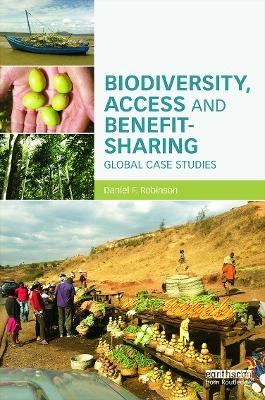
Biodiversity, Access and Benefit-Sharing
Routledge (Verlag)
978-0-415-71427-3 (ISBN)
The Nagoya Protocol to the Convention on Biological Diversity (CBD) is rapidly receiving signatures and ratifications. Many countries are preparing to implement the protocol through national research permit systems and/or biodiversity laws. Yet there is still considerable confusion about how to implement the Protocol, regarding access and benefit-sharing (ABS) procedures, and minimal experience in many countries. This book seeks to remedy this gap in understanding by analysing a number of ABS case studies in light of the Nagoya Protocol.
The case studies are wide-ranging, with examples of plants for medicinal, cosmetic, biotech and food products from or for development in Australia, North Africa, Madagascar, Switzerland, Thailand, USA and Oceania. These will encourage countries to develop national systems which maximise their benefits (both monetary and non-monetary) towards conservation and support for local communities that hold traditional knowledge. In addition, the author analyses new expectations raised by the Nagoya Protocol, such as the encouragement of the development of community protocols by indigenous and local communities. As a result, stakeholders and policy-makers will be able to learn the steps involved in establishing ABS agreements, issues that arise between stakeholders, and the types of benefits that might be realistic.
Daniel F. Robinson is Senior Lecturer at the Institute of Environmental Studies, University of New South Wales, Australia, and Visiting Research Fellow, International Centre for Trade and Sustainable Development (ICTSD), Geneva, Switzerland. He is author of Confronting Biopiracy (Earthscan, 2010).
Part 1: Access and Benefit Sharing 1. Introduction, Context, Methods and Trends 2. The Nagoya Protocol Part 2: Biodiscovery Access and Benefit Sharing Case Studies 3. The ICBG Madagascar Project 4. ABS Agreements in Thailand 5. The Samoan Mamala Case 6. The Moroccan Argan Case 7. The Australian ABS System and Examples 8. The Santo 2006 Global Biodiversity Expedition, Vanuatu 9. The ICBG Papua New Guinea Project 10. The ICBG Panama Project Part 3: Overview, Discussions and Themes 11. Discussions and Themes 12. Conclusions
| Zusatzinfo | 6 Tables, black and white; 19 Halftones, black and white; 25 Illustrations, black and white |
|---|---|
| Verlagsort | London |
| Sprache | englisch |
| Maße | 156 x 234 mm |
| Gewicht | 476 g |
| Themenwelt | Naturwissenschaften ► Biologie ► Ökologie / Naturschutz |
| Technik ► Umwelttechnik / Biotechnologie | |
| ISBN-10 | 0-415-71427-3 / 0415714273 |
| ISBN-13 | 978-0-415-71427-3 / 9780415714273 |
| Zustand | Neuware |
| Informationen gemäß Produktsicherheitsverordnung (GPSR) | |
| Haben Sie eine Frage zum Produkt? |
aus dem Bereich


